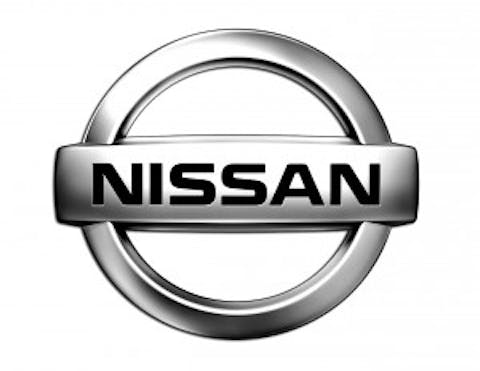While persistently high gasoline prices are prompting more consumers to consider an electric car — aka a battery electric vehicle (BEV) — most automakers are not taking this market seriously. Technological advances in recent years make electric cars look increasingly attractive. Those who ignore the future may find they have no future. This article is about how 5 companies are approaching electric car sales and the possible long-term impact on their investors.
1. Nissan Motor Co., Ltd. (ADR) (OTCBB:NSANY) and Tesla dominate U.S. electric car sales
Two of the smallest automakers by market cap, Nissan Motor Co., Ltd. (ADR) (OTCBB:NSANY) and Tesla Motors Inc (NASDAQ:TSLA), at $44.2 billion and $18.6 billion, respectively, dominate the electric car market in the US. Together, they account for nearly 88% of sales.

Source: InsideEVs.com
Ford Motor Company (NYSE:F), General Motors Company (NYSE:GM) and Honda Motor Co Ltd (ADR) (NYSE:HMC) combine for just 6% of the EV market. Last year, total sales at Ford Motor Company (NYSE:F), General Motors Company (NYSE:GM) and Honda Motor Co Ltd (ADR) (NYSE:HMC) were flat or declined, while Nissan Motor Co., Ltd. (ADR) (OTCBB:NSANY) and Tesla Motors Inc (NASDAQ:TSLA) enjoyed rising sales.
| Ticker | 2012 YoY Change in Sales |
| F | (1.5%) |
| GM | 1.3% |
| HMC | (11.3%) |
| NSANY | 7.2% |
| TSLA | 102.3% |
An examination of their approach to the market makes it clear that Nissan Motor Co., Ltd. (ADR) (OTCBB:NSANY) and Tesla Motors Inc (NASDAQ:TSLA) are committed to electric cars, and Honda is getting religion. Ford Motor Company (NYSE:F) and GM, in contrast, are only playing the emissions compliance game.
2. Some prices are too high for the target market
Except for Tesla Motors Inc (NASDAQ:TSLA), the other automakers mentioned have targeted the small car market. Unfortunately, in some cases, the prices aren’t very small. To keep things simple, let’s look at the lowest trim offerings for their electric cars. The cars are: the Ford Focus Electric, Chevy Spark EV, Honda Fit EV, Nissan Leaf S and Tesla Model S.
The Chevy Spark EV is the cheapest, with a base price of $19,995 after the $7,500 federal tax credit, followed by the Nissan Leaf S. But, buyers with taxable income under $45,900 won’t be able to take full advantage of this credit because their taxes are too low.
| Ticker | Model | MSRP | Price after Federal Tax Credit |
| F | Focus Electric | $35,200 | $27,700 |
| GM | Chevy Spark EV | $27,495 | $19,995 |
| HMC | Fit EV | $37,415 | $29,915 |
| NSANY | Leaf | $28,800 | $21,300 |
| TSLA | Model S | $69,900 | $62,400 |
Source: FuelEconomy.gov, GM.com
Ford’s MSRP of more than $35,000 is still unrealistically high, even after the $4,000 price cut. Do some of these automakers really want to sell these cars?
While Honda’s sticker price is high, that’s irrelevant, because the company is only leasing its 2014 model (see below).
3. It’s been suggested that automakers lose money selling electrics
Last month, Kelley Blue Book suggested that most companies lose money on electrics. Eric Loveday of InsideEVs.com believes that only Nissan Motor Co., Ltd. (ADR) (OTCBB:NSANY) and Tesla Motors Inc (NASDAQ:TSLA) are making a profit on their sales.
It is no secret that Ford would rather sell hybrids. And Toyota may abandon the RAV4 EV because of losses, and just buy the emission credits it needs in California.




